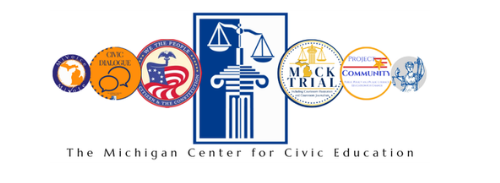This lesson provides an opportunity for students to explore how rules and laws are written and interpreted. Strategies for writing a good rule/law are emphasized and scenarios examined to determine what a rule/law really means.
”
Civics Lessons
No Animals at School
The Exchange: Should the United States Reduce Immigration?
Through research and deliberation, students are encouraged to look at the issue of immigration reform from different points of view.
The President’s Roles and Responsibilities: Understanding the President’s Job
Through these activities, students learn about the roles and responsibilities of the U.S. president and their own roles as citizens of a democracy.
Appreciating Democracy
This lesson is designed to teach students to appreciate the most basic practices of democracy in the United States: The lesson can be taught in three or four 45-minute class periods. At the heart of the lesson are three easy-to-teach activities (or simulations).
No Hats in Class
Students learn about the importance of rules and laws; what makes a good law
2nd Amendment and the Courts
After reading and discussion of federal gun policies and proposals, their pros and cons, and the Second Amendment, students debate the merits of different gun policies.
Michigan Court System
The lesson includes a read aloud book to teach students about the Michigan Court System.
Tinker v. Des Moines (1969)
This case summary provides teachers with everything they need to teach about Tinker v. Des Moines (1969). It contains background information in the form of summaries and important vocabulary at three different reading levels, as well a review of relevant legal concepts, diagram of how the case moved through the court system, and summary of the decision. This resource also includes seven classroom-ready activities that teach about the case using interactive methods.
Civil Conversation on the 14th Amendment
This lesson uses the Civil Conversation strategy to have students take a closer reading of Section 1 of the Amendment
Qualities of Judges
Students brainstorm qualities that judges might possess, then discuss why those qualities are important.

